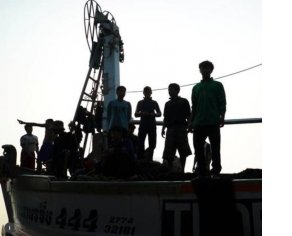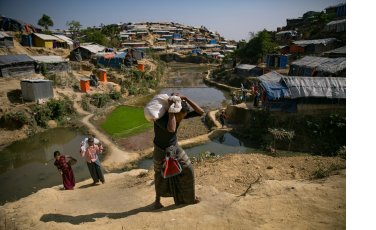Feedback/Comments from Our Readers
|
 Comments, questions and feedback is always welcome. Comments, questions and feedback is always welcome.
|
|
Here’s Why Global Health Suffers in a Fractured World
|
 The world is today more fractured than at any time since the Cold War, with a new fortress narrative now emerging. But is it really possible for countries to reap the benefits of globalization and shun the responsibilities that come with a globalized economy, while avoiding the consequences of doing so?
Globalism may have fallen out of favour with some, but the forces driving it are not likely to be so easily swayed. Formidable trends will continue to drive both globalization and globalism, and in doing so will bring new challenges that will threaten us all by, among other things, making it harder to prevent the spread of deadly infectious disease. So, in the face of such growing threats to global health security, it should become increasingly clear that putting national interests first doesn’t always mean focusing all your attention at home.
To read more about this article go to https://www.weforum.org
|
|
'It was torture': Grim tales in Thai fishing sector despite reforms
|
 "You can't leave because if you leave you won't get paid, and if you want to leave at the end it's only if they let you" "You can't leave because if you leave you won't get paid, and if you want to leave at the end it's only if they let you"
Trafficked into work and routinely abused, migrant fishermen in Thailand are still subject to forced labour despite efforts by the government to clean up the industry, advocacy groups said on Tuesday.
Thailand's multibillion-dollar seafood sector came under scrutiny in recent years after investigations showed widespread slavery, trafficking and violence on fishing boats and in onshore processing facilities.
The military, which took power since a 2014 coup, has rolled out reforms since the European Union in 2015 threatened to ban fish imports from Thailand unless it clean up the industry. But the advocacy group Human Rights Watch (HRW) says little has changed.
Brad Adams, the group's Asia director, said the measures should have given consumers in Europe, the United States and Japan the confidence that Thailand's seafood does not involve forced labour.
To read more about this article go to http://news.trust.org
|
|
The Refugees Who Don't Want To Go Home ... Yet
|
 This week, Bangladesh had planned to start sending Rohingya refugees back to Myanmar. Now the deal has been postponed because of logistical problems.
The refugees themselves have opposed the plan.
"They'll kill us," says Sonah Meah, 30. "If I go, they'll kill me."
Sitting on a straw mat in his shelter in the Hakimpara refugee camp, Meah says he was tortured and left for dead by the Myanmar military in August of last year. He says soldiers accused him of being part of an armed group called the Arakan Rohingya Salvation Army — a charge he denies.
To read more about this article go to https://www.npr.org
|
|
A new powerful drug to combat river blindness
|
Onchocerciasis, which is a disease caused by the filarial worm Onchocerca volvulus, is transmitted from individual to individual by Simulium black flies that breed in fast flowing rivers. The millions of larvae (microfilariae) released by the adult parasites invade skin and eyes where they can cause severe manifestations, including blindness. International control programmes for onchocerciasis have been implemented since the 1970s. Insecticide spraying to eliminate the vector was supplemented by, and ultimately replaced from the 1990s by, mass administration of ivermectin, a drug which kills microfilariae and prevents their release by the adult worms for several months.
To read more about this article go to http://www.thelancet.com
|
|
|
|
Save the Dates of Local Events!
|
Click here to add International week to your calendar!
International Week 2018
Jan. 29 - Feb. 2, 2018
===========================
Annual Rich Man Poor Man Dinner Event 2018
April 7, 2018
Time: 6:00 pm to 9:30 pm
|
|
Conferences, Symposiums & Lectures
|
Save this link to your favorites as I update it daily will all events, symposiums, etc., just click here.
==========================
2018 CUGH Conference
March 16 - 18, 2018
New York Hilton Midtown,
=========================
Global Health & Innovation Conference
April 14-15, 2018
Yale University
New Haven, CT
|
|
Call for Abstracts/Submissions
|
Global Health & Innovation Conference at Yale on
April 14-15, 2018
is calling for abstracts.
|
|
Newsletter & Special Journal Editions
|
|
|